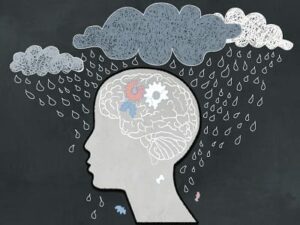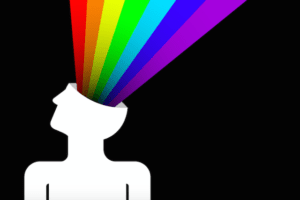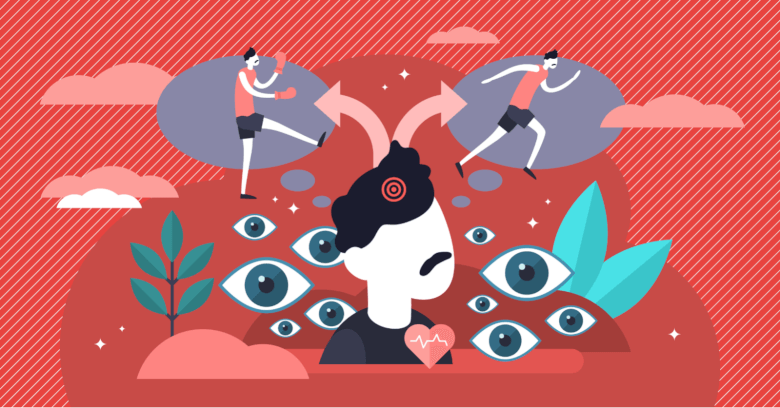Do you ever feel like there’s something wrong, but you can’t put your finger on it? That unease lingers in the back of your mind, but you can never quite identify what’s causing it? Chances are, you’re experiencing subconscious anxiety. This type of anxiety is often difficult to identify and manage because we’re not always consciously aware of what’s making us anxious. In this blog post, we will discuss the symptoms of subconscious anxiety and how to handle them!
Contents
Defining Subconscious Anxiety

Subconscious anxiety is defined as “anxiety that results from repressed fears or memories”, according to WebMD. This type of anxiety is often difficult to identify because we may not be consciously aware of what’s making us anxious. It can manifest as a feeling of unease, restlessness, or even depression. Subconscious anxiety can also cause physical symptoms such as headaches, muscle tension, and fatigue.
It is important to know that subconscious anxiety is different from generalized anxiety disorder (GAD). GAD is a diagnosed anxiety disorder that is characterized by chronic and exaggerated worry about everyday things. People with GAD may be aware of what’s causing their anxiety, but they feel powerless to stop it. On the other hand, people with subconscious anxiety may not be aware of the root cause of their anxiety.
Signs And Symptoms
There are several signs and symptoms that may be indicative of subconscious anxiety. If you are experiencing any of the following, it is important to consult with a mental health professional to see if subconscious anxiety is the root cause:
Psychological Signs

- Feeling on edge or restless
- Difficulty concentrating
- Perfectionism
- Irritability
- Intrusive thoughts
- Pessimistic attitudes
- Rumination
- Unexplained guilt
- Highly defensive
- Indecisiveness
- Easily distracted
- Trouble keeping things organized
- Depression
Physical Signs
- Chronic fatigue
- Muscle tension or aches
- Headaches
- Loss of interest in sex
- Numbness or tingling
- Frequent urination
- Upset stomach or indigestion
- Sweating
- Insomnia
- Pounding heart or rapid heartbeat
- Shortness of breath
- Dizziness or lightheadedness
These are only a few indicators of your subconscious making you feel anxious or on edge. It is essential to remember that different people may experience different symptoms with variations in intensity, impact as well as frequency.
Causes Of Subconscious Anxiety
Although there is still no concrete evidence as to what causes subconscious anxiety, some experts believe that there might be multiple causes behind this condition.
- Repressed fears or memories: One of the most common causes of subconscious anxiety is repressed fears or memories. When we experience a traumatic event, our minds may try to protect us by pushing those memories into the subconscious. However, this can backfire because those suppressed memories can still cause anxiety and distress.
- Unresolved childhood issues: Another common cause of subconscious anxiety is unresolved childhood issues. If we experienced trauma or neglect during childhood, it can lead to anxious feelings in adulthood. Often, these feelings are subconscious because we may not be consciously aware of what’s causing them.
- Genetic factors: There is some evidence to suggest that genetic factors may play a role in the development of subconscious anxiety. If you have a family member who suffers from an anxiety disorder, you may be more likely to develop one yourself.
- Stressful life events: Stressful life events can also trigger subconscious anxiety. If we experience a major life change or trauma, it can leave us feeling anxious and stressed. These feelings may be subconscious because we are focused on coping with the event itself.
- Personality traits, such as perfectionism or negative thinking: Personality traits, such as perfectionism or negative thinking, can also contribute to the development of subconscious anxiety. If we are always striving for perfection or ruminating on negative thoughts, it can lead to feelings of anxiety.
- Other mental disorders: Finally, other mental disorders can also cause subconscious anxiety. If we suffer from depression, OCD, or PTSD, we may also experience anxious feelings.
One may develop anxiety for one or a combination of the above factors.
Treatment Options

If you think you may be suffering from subconscious anxiety, there are several treatment options available.
Therapy
There are various therapeutic interventions that help in managing and coming up with coping strategies for subconscious anxiety.
Cognitive-behavioral therapy (CBT): CBT is a type of therapy that can help you change your thinking and behavior patterns. This can be an effective treatment for subconscious anxiety because it can help you identify and change the negative thoughts and behaviors that are contributing to your anxiety.
Acceptance and Commitment Therapy (ACT): ACT is another type of therapy that can help you learn to accept your thoughts and feelings without judgment. This can be helpful for subconscious anxiety because it can help you stop struggling against your anxiety and instead focus on living a full life despite your anxiety.
Exposure therapy: Exposure therapy is a type of CBT that involves gradually exposing yourself to the things you are afraid of. This can be an effective treatment for subconscious anxiety because it can help you overcome your fears by facing them head-on.
Medication
Prescription medication is another highly effective treatment for severe anxiety symptoms. Some of the most common medications include:
Anti-anxiety medication: Anti-anxiety medication can be used to treat the symptoms of anxiety, such as panic attacks, racing heart, and difficulty breathing. However, it is important to note that this medication does not treat the underlying causes of anxiety.
Anti-depressants: Anti-depressants are another type of medication that can be used to treat anxiety. These medications work by changing the levels of neurotransmitters in the brain, which can help to reduce anxiety symptoms.
NOTE: If you are considering medication for anxiety, it is important to speak with a healthcare provider to determine if it is the right treatment for you. They can also help you monitor the side effects as well as the benefits of medication on an individual’s body.
Alternate Treatments
In addition to therapy and medication, there are several alternate treatments that can be effective for treating subconscious anxiety.
- Yoga: Yoga is a form of exercise that can help to calm the mind and body. This can be helpful for subconscious anxiety because it can help you learn to control your breathing and focus your thoughts.
- Acupuncture: Acupuncture is a traditional Chinese medicine that involves inserting thin needles into the skin. This can be helpful for subconscious anxiety because it can help to release tension and calm the mind.
- Meditation: Meditation is another way to calm the mind and body. This can be helpful for subconscious anxiety because it can help you learn to focus your thoughts and let go of worry. It also helps you tocontrol your thoughts and focus on the present moment.
- Relaxation techniques: Relaxation techniques, such as progressive muscle relaxation or guided imagery, can also help to reduce anxiety symptoms. These techniques can be helpful for subconscious anxiety because they can help you learn to control your breathing and focus your thoughts.
Self Help Tips
In addition to seeking professional help, there are several things you can do at home to help reduce your anxiety.
- Exercise: Exercise is a great way to reduce stress and tension. It can also help to improve your mood and overall sense of well-being.
- Journal: Writing in a journal can help you to identify the thoughts and behaviors that are contributing to your anxiety. It can also help you to track your progress as you work to overcome your anxiety.
- Relaxation techniques: Relaxation techniques, such as progressive muscle relaxation or guided imagery, can also help to reduce anxiety symptoms. These techniques can be helpful for subconscious anxiety because they can help you learn to control your breathing and focus your thoughts.
- Talk to someone: Talking to someone who understands what you’re going through can be helpful. This could be a friend, family member, therapist, or support group. Talking about your anxiety can help you to feel less alone and more understood.
- Get enough sleep: Sleep is important for both physical and mental health. It can be helpful to get at least eight hours of sleep each night.
- Eat a healthy diet: Eating a healthy diet can help you feel better both physically and mentally. Be sure to include plenty of fruits, vegetables, whole grains, and lean protein in your diet.
- Reduce stress: Try to find ways to reduce the amount of stress in your life. This may include scheduling time for yourself, setting boundaries with others, and learning to say “no” when you need to.
Anxiety can be a difficult thing to deal with, but there are treatments available that can help. If you think you may be dealing with subconscious anxiety, be sure to speak with a healthcare professional to get the help you need. With the right treatment, it is possible to manage your anxiety and live a full life.
Conclusion
Subconscious anxiety can be a difficult thing to deal with. However, there are treatments available that can help you manage your anxiety and live a full life despite it. If you think you may be suffering from subconscious anxiety, speak with a healthcare provider to discuss treatment options.
For more information, please contact MantraCare. Anxiety is a common mental health condition characterized by persistent feelings of worry, fear, and apprehension. If you have any queries regarding Online Anxiety Counseling experienced therapists at MantraCare can help: Book a trial Anxiety therapy session


